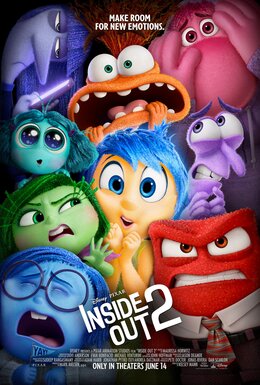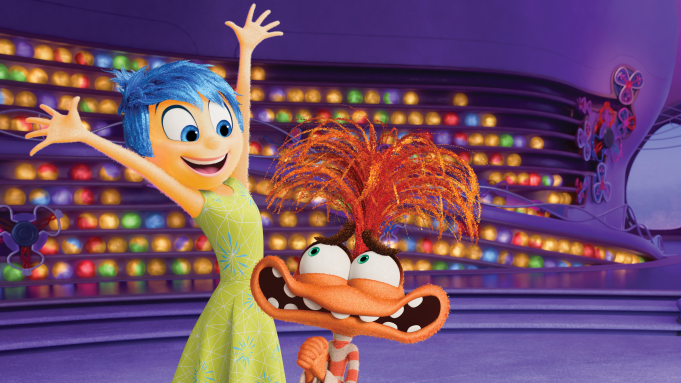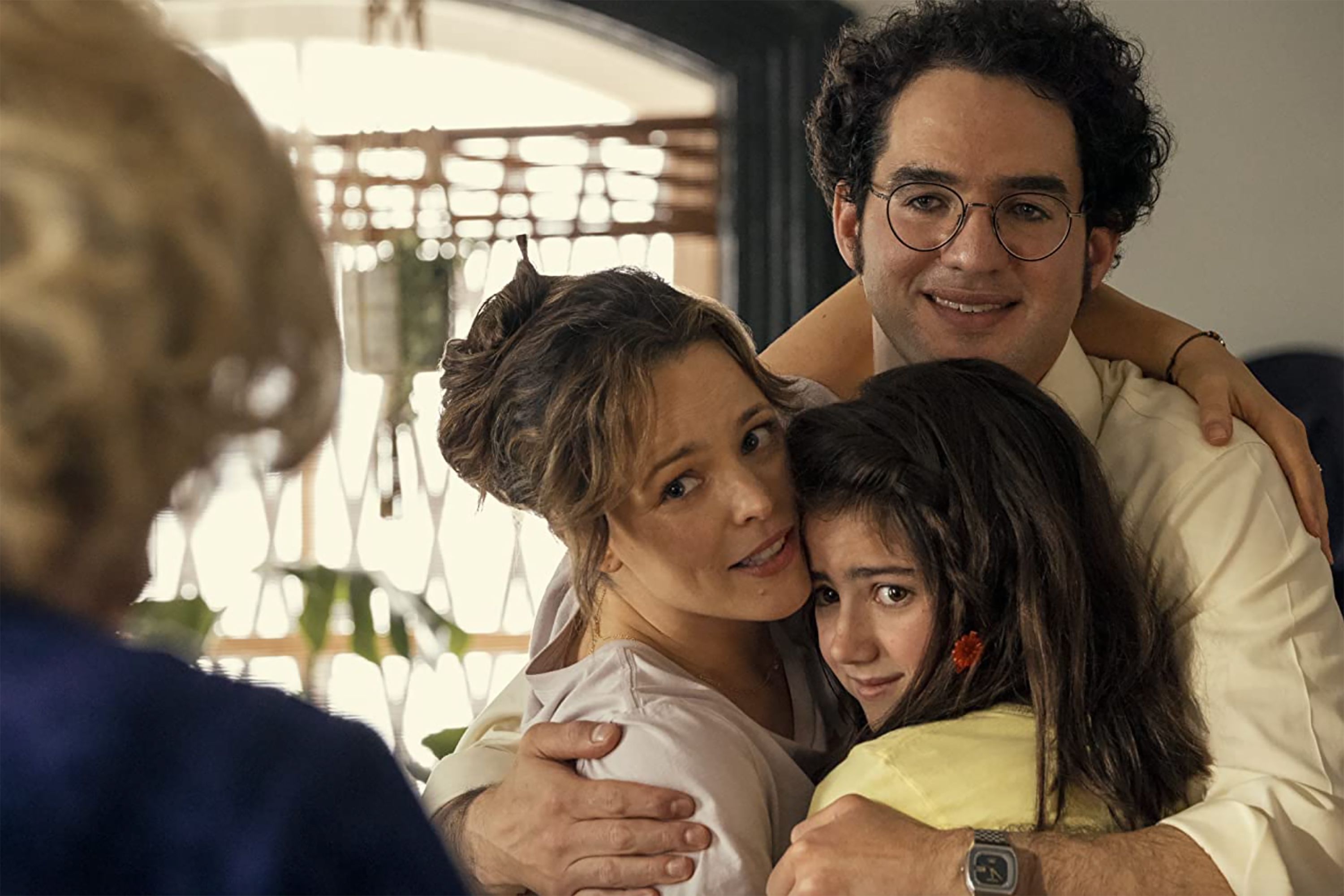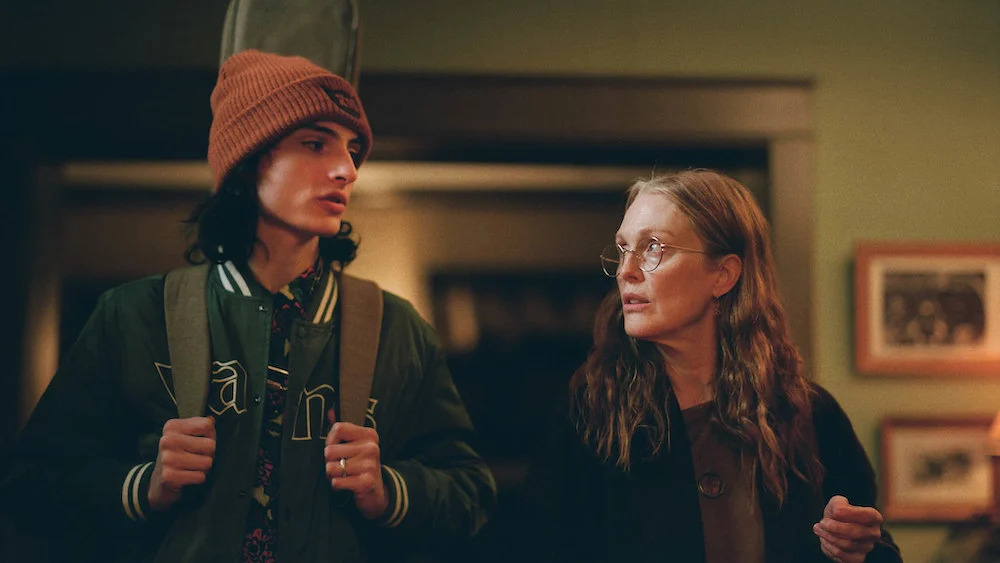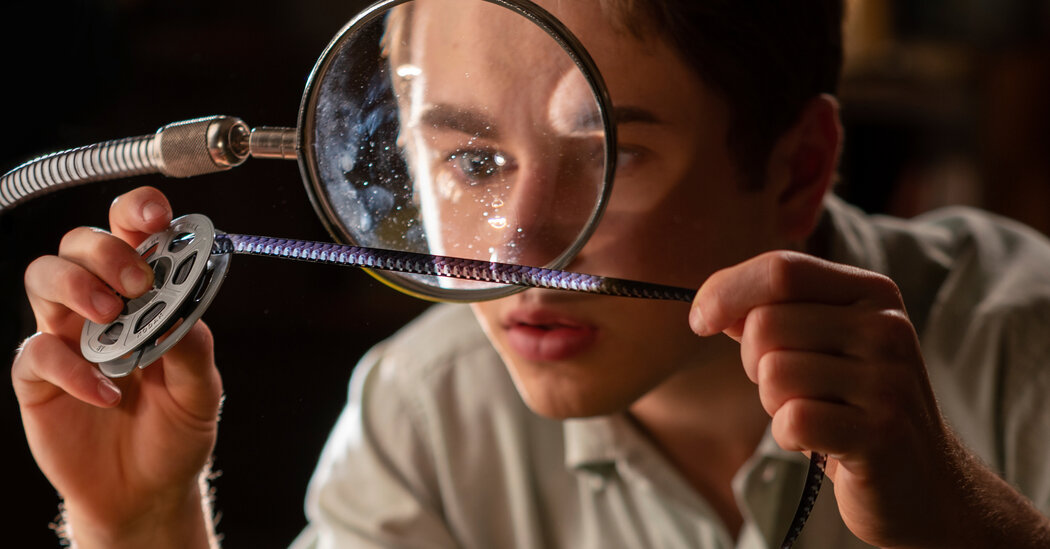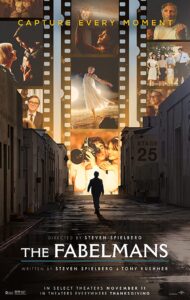My Old Ass
Posted on September 19, 2024 at 5:19 pm
B +| Lowest Recommended Age: | Mature High Schooler |
| MPAA Rating: | Rated R for language throughout, drug use and sexual material |
| Profanity: | Very strong language used by teens and an adult |
| Alcohol/ Drugs: | Teen drug use |
| Violence/ Scariness: | Reference to sad death, some family conflict |
| Diversity Issues: | None |
| Date Released to Theaters: | September 20, 2024 |
I don’t think there is a sadder sentence than this one: “I thought I would always be able to go back.”
We all know that feeling, captured memorably in the last act of Thornton Wilder’s “Our Town.” When Emily gets a chance to revisit a day from her early teen years, the mingled joy, nostalgia, and regret for taking every part of that life for granted are overwhelming. Something like that happens to Elliott (a terrific Maisy Stella) on her 18th birthday. Instead of dinner with her family, Elliott (a terrific Maisy Stella) goes off with her friends for a celebration involving some sketchily-sourced mushrooms. While her friend Ro (Kerrie Brooks) dances and her friend Ruthie (Maddie Zeigler) zonks out, Elliott has a conversation with…her future self (Aubrey Plaza), age 39.

If you were 18, what would you ask your future self? (Don’t ask for stock tips; that’s off limits.) If you had a chance to talk to your 19-years-younger self, what advice would you give? If you were 18, what advice would you take?
Elliott’s family owns a cranberry farm in a spectacularly beautiful section of Canada. But all she can think about how how excited she is to be leaving — she is about to go to college in Toronto and she has a been dreaming of the excitement of independence in a big city for as long as she can remember. Her middle brother, Max (Seth Isaac Johnson) loves the farm and is happy to be the one to take it over when his parents retire, but Elliott cannot wait for what she considers her real life to begin.
Older Elliott has had almost two decades of that “real life.” The wonderful Aubrey Plaza does not often get a chance to show the kind of warmth she does here, and it is a pleasure to see. Her 39-year-old Elliott is fragile in a way the younger version is not. She insists she is happy with her life (and proud to be a near-40-year-old PhD student) but she has clearly experienced some difficult times. The least successful moments in the film are a few brief indications that humans have had some setbacks in the next 29 years. They seem to be from an earlier draft that someone forgot to leave out.
The one very clear piece of advice older Elliott is very firm about is telling her younger self to stay far away from anyone called Chad. This is a mystery because younger Elliott has no idea who that might be and she is exclusively attracted to girls, so she cannot imagine how anyone named Chad might be a problem.
And then Chad (Percy Hynes White) suddenly appears, as Elliott is skinny dipping in a pond. He is her parents’ summer hire for the farm. And he is…irresistible. Despite her promise, despite her resolve, despite her fundamental notion of herself as exclusively gay, his patient kindness and “symmetrical face” are intoxicating.
Older Elliott has somehow managed to put her phone number in younger’s cell (as My Old Ass), so they are able to have some conversations and text exchanges, and older keeps reminding younger to have nothing to do with Chad. She also tells younger to be nicer to Mom (a lovely Maria Dizzia) and her brothers. For those last few days before she leaves for college, younger Elliott takes time to realize how much she has at home and how much she will miss everyone and everything. One of the toughest parts of growing up is realizing that you will not always be able to go back, and, as Emily says in “Our Town” that no one is able to appreciate it while it is happening. “My Old Ass” conveys all of this with welcome heart and humor.
Parents should know that this film includes very strong language, teenage drug use, and sexual references and situations.
Family discussion: What would you tell your younger self? What would you ask your older self?
If you like this, try: “17 Again”


